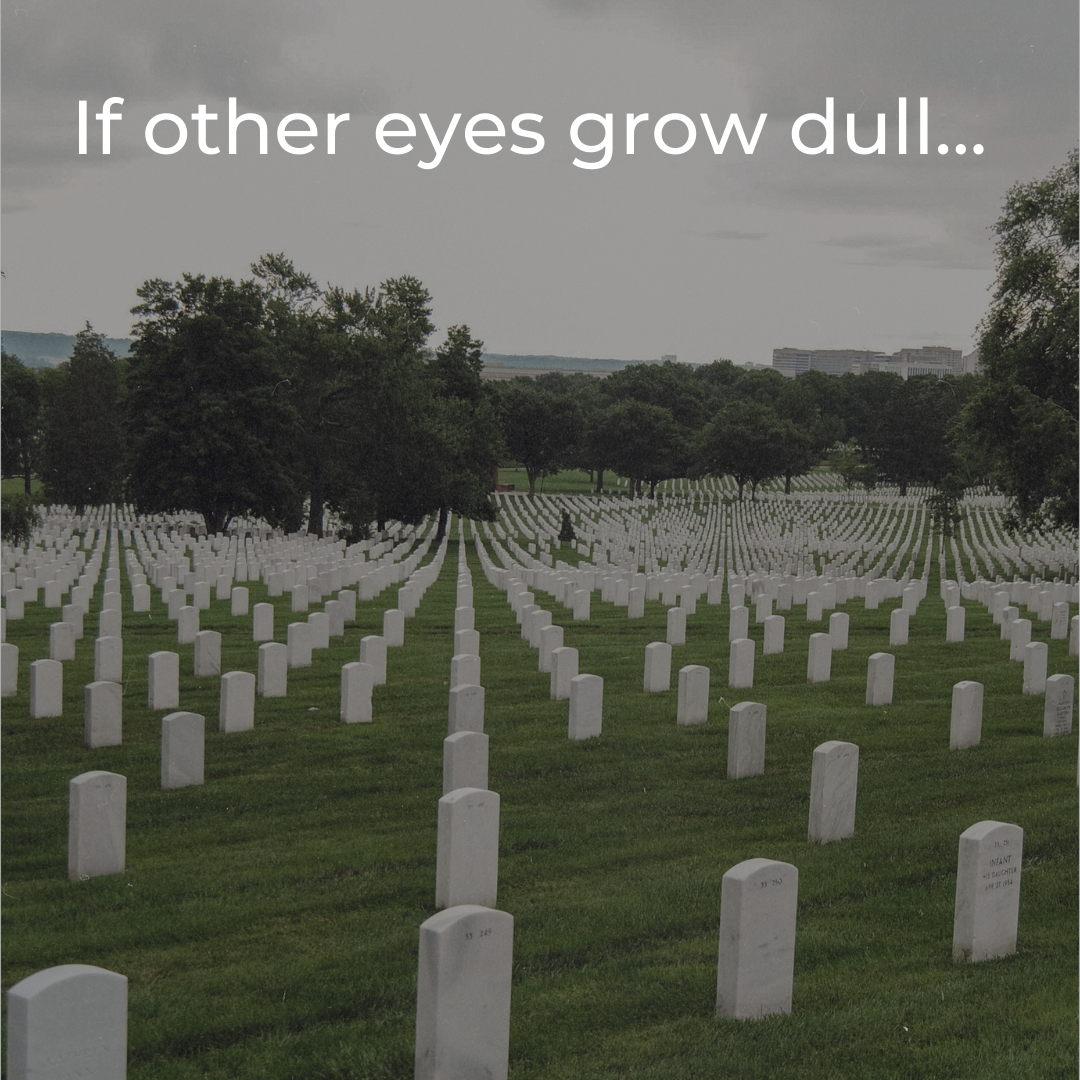
Let no vandalism of avarice or neglect, no ravages of time, testify to the present or to the coming generations that we have forgotten, as a people, the cost of a free and undivided republic. If other eyes grow dull and other hands slack, and other hearts cold in solemn trust, ours shall keep it well as long as the light and warmth of life remain in us.
— John A. Logan, General, Commander-in-Chief , General Order No. 11, May 5, 1868
Imagine those to the left and right of you succumbing to the bitter cold of Valley Forge as you reach the inevitable conclusion that this will be your fate as well. Imagine being called forward to advance from cover under heavy fire at Fredericksburg while, as one Union soldier put it, "it seemed as if a million bees were singing in the air." Consider what it must have been like to be a part of the Allied offensive into the Argonne Forest in 1918. Consider your likely state of mind if you were in the 1st Army, 5th Corps, as your landing craft pitched open under withering fire at Omaha Beach. Put yourself behind the instruments of a helicopter on an impossible evacuation mission over Korea or in the boots of an American teenager far from home moving through the hostile jungles of Vietnam. Imagine if someone presents himself at your checkpoint in Kabul or Baghdad, and you recognize that he has a bomb strapped to his body. As hard as it might be, at least for a moment today, think about the idea of suddenly finding yourself in a situation which calls for you to give your life for another.
It wasn't long ago that I stood in front of a kiosk in the World War II Museum in New Orleans, scrolling through a screen on which one could read the stories of those who had been awarded the Medal of Honor. Established by President Lincoln in 1861, the Medal of Honor is our nation's highest recognition of valor in combat. It's awarded to those who have exhibited "conspicuous gallantry and intrepidity at the risk of life, above and beyond the call of duty." Many of the recipients did not survive the heroic acts for which they are honored. I understand that a National Medal of Honor Museum is presently in the planning stages in our nation's capital, but even now you can access its database to review the sort of thing I read standing at that kiosk. I'd encourage you to do this today at this link. If you do, I'm confident that after reviewing only a few, you'll be shaking your head in awe.
In Psalm 8, the Psalmist poses a question to God as if from the heavens, from the ranks of the angels: "What is mankind that you are mindful of them?" An answer, I think, is in this database. It's astonishing. Entry after entry. And while, as we've been reminded again these last few weeks, human beings routinely wreak havoc and horror on one another and war and conflict stem from man's own failures and nature, human beings are also capable of ineffable courage, unbelievable selflessness, and magnificent acts of service, which must awe our Creator.
In The Brothers Karamazov, Fyodor Dostoevsky creates a scene in which the devil appears to one of the brothers, telling the troubled Ivan that he, the devil, is incapable of feeling gratitude. "My best emotions, my most positive feelings, such as gratitude, for instance, are formally forbidden me...." It's a chilling scene, but beyond that, it's interesting that such a brilliant writer would put his finger on this—the close connection, the adjacency, and sometimes robust overlapping between the concept of evil and the practice of ingratitude.
With respect to those who have given their last full measure of devotion for our country, may it be said of we who live within the largesse they have secured that even "If other eyes grow dull and other hands slack, and other hearts cold in solemn trust, ours shall keep it well as long as the light and warmth of life remain in us."
God — I am grateful for and will not forget those who died serving, protecting, and defending the best ideals of this nation. Amen.
— Greg Funderburk





